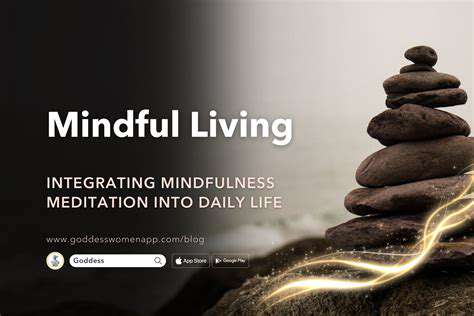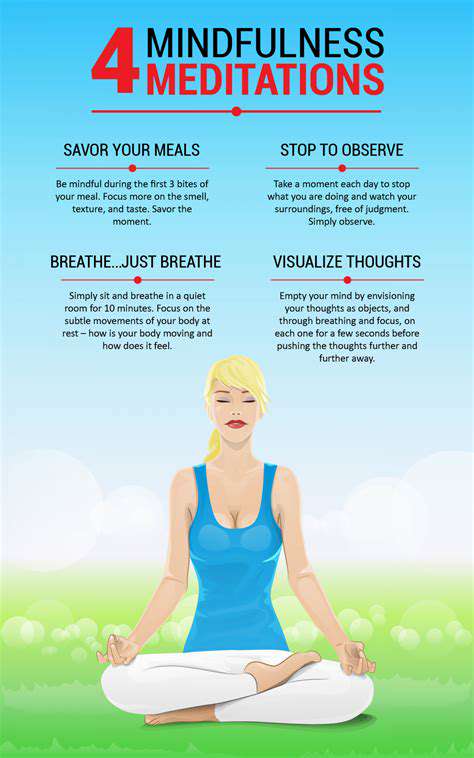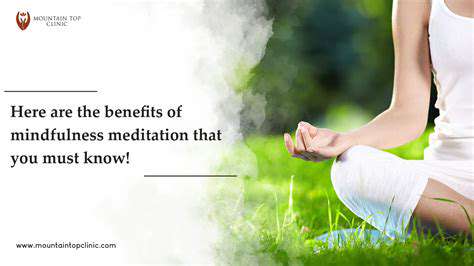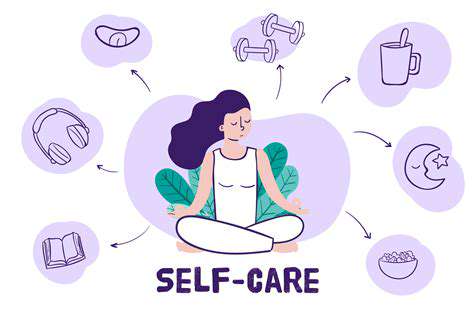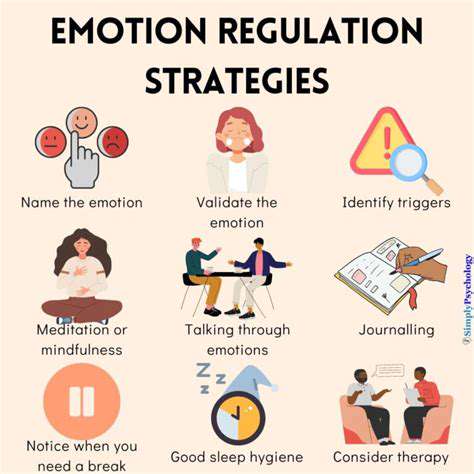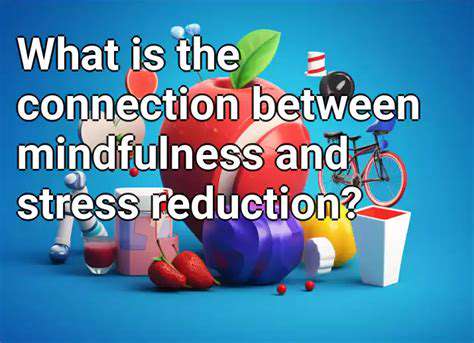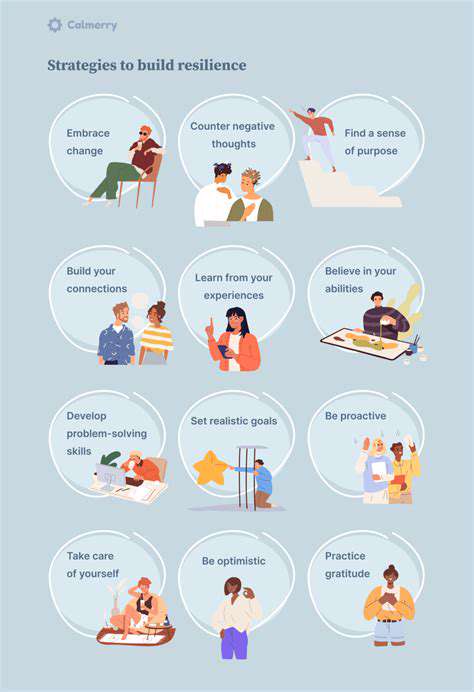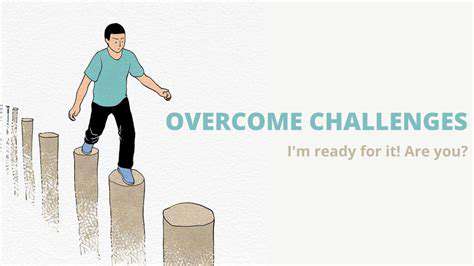A Comprehensive Guide to Mindfulness Meditation as a Daily Practice
Introduction to Mindfulness Meditation
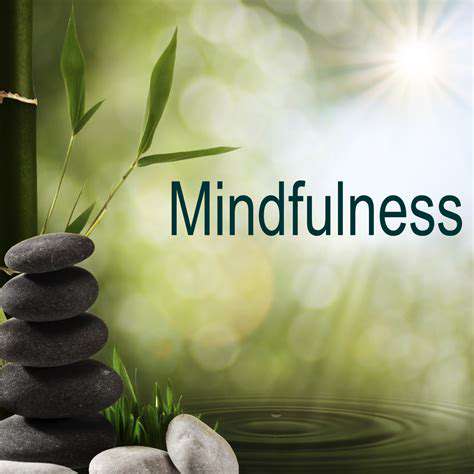
Understanding Mindfulness Meditation
Mindfulness meditation is a practice that encourages an enhanced state of awareness and focused attention. It involves paying close attention to the present moment and observing one’s thoughts and feelings without judgment. This form of meditation can help individuals create a greater sense of balance and peace in their lives. Through consistent practice, mindfulness can lead to improved emotional regulation and reduced symptoms of anxiety and depression.
At its core, mindfulness meditation teaches individuals to connect with their breath, thus anchoring themselves in the now. This can provide a refuge from the busyness of daily life, allowing for moments of peace and reflection. Developing a mindfulness practice requires patience and commitment, as it is not a skill acquired overnight. Regular engagement with this practice helps in cultivating a more aware and calm mind.
The roots of mindfulness meditation trace back to ancient traditions, particularly in Buddhism, where it is practiced as a pathway to enlightenment. However, modern adaptations have made it accessible to people from all walks of life. Today, mindfulness meditation is integrated into various therapeutic practices, finding its place in psychology and wellness programs around the world.
Techniques for Practicing Mindfulness Meditation
There are several techniques for practicing mindfulness meditation, each applicable to different lifestyles and preferences. One of the most common methods is focused attention meditation, where individuals concentrate on their breath while gently bringing awareness back when the mind wanders. To enhance this practice, many find it helpful to set a timer, starting with shorter sessions and gradually increasing the duration. This helps in establishing a routine and creates a safe space for deeper exploration of thoughts and emotions.
Body scan meditation is another technique that emphasizes awareness of different parts of the body. By directing attention from head to toe, individuals can release tension and foster a greater connection to their physical state. This practice is particularly useful for those who struggle with racing thoughts since it redirects focus away from mental chatter and towards the sensations of the body.
Additionally, walking meditation offers a dynamic option for practicing mindfulness. By focusing on the experience of walking—such as the sensation of the ground beneath one’s feet and the rhythm of breath—individuals can cultivate mindfulness in motion. This technique is especially beneficial for those who find it challenging to sit still for extended periods. By integrating mindfulness into daily activities, it can become a more natural part of life.
Benefits of Daily Mindfulness Meditation
Incorporating mindfulness meditation into daily routines can lead to significant psychological and physical benefits. Research has shown that even short periods of daily meditation can enhance emotional resilience and decrease stress levels. Engaging in mindfulness regularly fosters a sense of calm and clarity, making it easier to navigate life's challenges. This practice can create a buffer against feelings of overwhelm and anxiety.
Moreover, mindfulness meditation has been linked to improved focus and concentration. By training the mind to stay present, individuals may find themselves becoming more productive and efficient in both professional and personal tasks. This newfound clarity often leads to better decision-making as well.
Additionally, practicing mindfulness can improve interpersonal relationships. As individuals become more aware of their thoughts and feelings, they may develop greater empathy and compassion toward others. This can enhance communication and reduce conflict, leading to healthier and more fulfilling connections with friends, family, and colleagues.
The Foundations of Mindfulness Meditation
Understanding Mindfulness
Mindfulness is the practice of being fully present in the moment, embracing thoughts, feelings, and bodily sensations without judgment. It encourages individuals to observe their experiences without becoming overwhelmed or reactive. By cultivating mindfulness, practitioners can develop a greater awareness of their thoughts and emotions, leading to an enhanced understanding of themselves.
This approach can be beneficial not only in meditation but also in daily life, allowing individuals to navigate challenges with a sense of calm and clarity. Whether it’s savoring a meal or engaging in a conversation, mindfulness helps one to appreciate and engage with life's moments more fully.
Moreover, mindfulness is rooted in ancient contemplative traditions but has gained popularity in modern contexts for its psychological and emotional benefits. Scientific studies have shown that regular mindfulness practice can reduce stress, anxiety, and symptoms of depression, making it a valuable tool for overall mental health.
The Benefits of Mindfulness Meditation
Practicing mindfulness meditation offers numerous physical and mental health benefits. One of the most significant advantages is stress reduction. By fostering an environment of relaxation, mindfulness can lower levels of cortisol, the stress hormone, leading to a calmer state of mind and improved emotional well-being.
Additionally, mindfulness meditation has been linked to enhanced focus and concentration. By training the brain to remain in the present moment, practitioners often find it easier to concentrate on tasks and improve their productivity, both in personal and professional endeavors.
Furthermore, regular mindfulness practice can lead to better emotional regulation. Individuals learn to acknowledge their emotions without becoming overwhelmed, fostering resilience and reducing reactivity. This greater emotional intelligence can enhance communication, relationships, and overall life satisfaction.
How to Start a Daily Mindfulness Practice
Starting a daily mindfulness meditation practice can be simple and requires just a few minutes each day. Begin by finding a quiet space where you can sit comfortably without distractions. Whether it’s a cozy chair, a meditation cushion, or a spot on the floor, choose a place that feels peaceful to you.
Next, determine the length of your practice. For beginners, aiming for just 5 to 10 minutes is ideal. Gradually extend the duration as you become more comfortable with the practice. Set a timer to help focus, allowing your mind to ease into the meditation without worrying about the time.
As you practice, focus on your breath. Close your eyes and take a few deep breaths, allowing your attention to settle on the natural rhythm of your breathing. If your mind wanders, gently bring your thoughts back to your breath. This simple technique is the cornerstone of mindfulness meditation and helps train your mind to remain present.
Common Challenges in Mindfulness Meditation
Many people encounter challenges when they first start practicing mindfulness meditation. One of the most common hurdles is dealing with a wandering mind. It's natural for thoughts to drift, especially if you are new to meditation. Recognizing this as a part of the journey can help reduce frustration.
Another challenge is finding the time and motivation to maintain a daily practice. Life can get busy, and meditation might feel like an added task on an already full schedule. To overcome this, consider integrating meditation into your daily routine, such as meditating right after waking up or before going to bed.
Lastly, some may struggle with physical discomfort during meditation. It's important to find a comfortable seated position, and if traditional postures are uncomfortable, consider using a chair or lying down. Remember that meditation is about finding what works best for you.
Resources for Deepening Your Practice
To enhance your mindfulness meditation journey, various resources are available, including books, apps, and online courses. Popular books like "The Miracle of Mindfulness" by Thich Nhat Hanh and "Wherever You Go, There You Are" by Jon Kabat-Zinn can provide valuable insights and techniques for your practice.
Additionally, mindfulness meditation apps such as Headspace and Calm offer guided meditations, reminders, and courses that can be incredibly helpful for beginners and experienced practitioners alike. These platforms often provide a variety of themes, from stress relief to sleep enhancement, catering to individual needs.
Finally, consider joining a local meditation group or participating in online communities. Engaging with others who practice mindfulness can provide motivation, support, and shared experiences that enrich your own journey. Many mindfulness centers offer workshops and retreats, which can be transformative experiences for deepening your practice.
Getting Started with Mindfulness Meditation
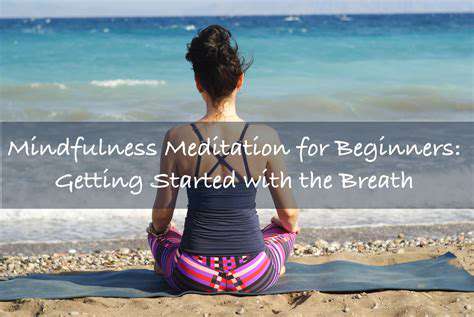
Understanding Mindfulness Meditation
Mindfulness meditation is a practice that encourages you to focus on the present moment without judgment. This means becoming aware of your thoughts, feelings, and sensations without trying to change them. This non-reactive observation helps to foster a greater sense of peace and clarity.
Many people misunderstand mindfulness as merely a relaxation technique; while it can certainly be calming, its benefits extend far beyond that. Studies have shown that regular practice can reduce symptoms of anxiety and depression by promoting emotional resilience. Ultimately, mindfulness helps us to navigate life's challenges with greater ease and understanding.
To effectively start this practice, it’s essential to cultivate a genuine interest in your internal experience. This means being curious rather than critical about your thoughts and feelings. Embracing this mindset can transform your meditation practice into a powerful journey of self-discovery.
Establishing a Daily Meditation Routine
Creating a consistent daily routine is key to reaping the benefits of mindfulness meditation. Start by designating a specific time each day when you can sit quietly; many people find morning works best as it sets a positive tone for the day. A regular schedule increases your chances of making mindfulness a lasting habit.
Begin with short sessions, perhaps just five to ten minutes, especially if you're new to the practice. As you become more comfortable, you can gradually extend the time. Consider using guided meditations or apps to help structure your practice until you feel more confident meditating on your own.
Additionally, find a comfortable and distraction-free space to meditate. Creating an inviting space can enhance your experience and make it easier to commit to a daily routine. Remember, the goal is to cultivate a practice that feels enjoyable and accessible rather than burdensome.
Benefits of Practicing Mindfulness Meditation Regularly
Physical Benefits
One of the prominent benefits of practicing mindfulness meditation is its positive impact on physical health. Regular meditation has been linked to reduced blood pressure, improved heart health, and enhanced immune function. This can lead to a greater overall sense of well-being.
Furthermore, mindfulness can promote better sleep patterns, which is crucial for physical recovery and regeneration. Those who meditate often report falling asleep faster and experiencing deeper, more restorative sleep.
Engaging in mindfulness practices can also lessen the experience of chronic pain. By fostering a greater awareness of bodily sensations, individuals can develop a new relationship with their pain, reducing its intensity and impact on their daily lives.
Lastly, studies have demonstrated that meditation can lead to weight management through increased mindful eating practices. When individuals are more aware of their eating habits and bodily responses, they are less likely to engage in overeating or emotional eating.
Mental Clarity and Emotional Resilience
Another key benefit of mindfulness meditation is its ability to enhance mental clarity. Practitioners often find that they can focus better, improve their memory, and make decisions more effectively. This mental sharpness can be invaluable in both personal and professional contexts.
Meditation also encourages emotional resilience. By fostering a non-judgmental awareness of thoughts and feelings, individuals can learn to observe their emotions without becoming overwhelmed by them. This can result in improved emotional stability and better coping strategies during difficult times.
Moreover, mindfulness helps cultivate a positive mindset. Regular practitioners often report increased levels of happiness and contentment. This can be attributed to heightened self-awareness and the ability to recognize and challenge negative thought patterns.
Lastly, mindfulness can reduce symptoms of anxiety and depression. Research has shown that consistent meditation can help reduce the reoccurrence of these mental health challenges, promoting a more stable and fulfilling life.
Enhanced Relationships and Communication Skills
Practicing mindfulness meditation can significantly improve interpersonal relationships. Mindfulness fosters empathy and compassion, allowing individuals to better connect with others on an emotional level. This can lead to deeper, more meaningful connections with friends, family, and colleagues.
Additionally, mindfulness enhances active listening skills. When individuals are more present and attentive during conversations, they are better able to comprehend others' points of view and respond thoughtfully. This leads to more effective and satisfying communication.
Mindfulness also encourages patience and understanding. In moments of conflict or frustration, practitioners often find themselves better equipped to respond calmly rather than react impulsively, promoting healthier resolutions.
As relationships strengthen through these enhanced communication skills and emotional awareness, individuals may experience reduced feelings of isolation or loneliness, providing a supportive foundation for personal growth.
Long-Term Personal Growth and Self-Awareness
Engaging in mindfulness meditation regularly can foster profound personal growth. It allows individuals to explore their inner thoughts, beliefs, and motivations, leading to improved self-understanding. As practitioners become more aware of their habitual thought patterns, they can consciously choose to change any negative or limiting beliefs.
Mindfulness also promotes a growth mindset. Practitioners often feel more empowered to embrace challenges, viewing them as opportunities for learning and development rather than as obstacles to overcome. This can have a significant impact on both personal and professional aspirations.
Over time, individuals may experience an increased sense of purpose and direction in their lives. By reflecting on their values and priorities through mindfulness, they are better positioned to make choices that align with their authentic selves.
Lastly, mindfulness can instill a greater appreciation for the present moment. Individuals learn to value their experiences and seek joy in the everyday, leading to a more fulfilling existence. This appreciation can transform the way they approach life, relationships, and challenges.
Overcoming Challenges in Mindfulness Meditation
Understanding Common Obstacles
Many individuals begin their mindfulness meditation journey with enthusiasm but soon encounter obstacles that can hinder their progress. Recognizing these common challenges is the first step in overcoming them. Some of the most frequent hurdles include a racing mind, physical discomfort, and distractions from the environment.
A racing mind can be particularly frustrating, leading practitioners to feel that they are not 'doing it right.' It’s essential to understand that this is a normal part of the process. With practice, individuals can learn to observe their thoughts without judgment, allowing them to pass through rather than getting caught up in them.
Physical discomfort during meditation, such as stiffness or pain, can also act as a barrier. Finding a comfortable position—whether sitting or lying down—and using props like cushions can greatly enhance comfort and facilitate a more productive practice.
Environmental distractions, such as noise or interruptions, can make it difficult to focus. Creating a dedicated meditation space that minimizes these distractions, or choosing times when the environment is quieter, can significantly improve the experience.
Ultimately, awareness of these obstacles empowers individuals to adopt strategies to address them, enhancing their mindfulness practice as they engage with their experiences more effectively.
Techniques for Sustaining Practice
Establishing a consistent mindfulness meditation practice requires intentional strategies and commitment. One effective approach is to set aside a specific time each day dedicated solely to meditation. By establishing a routine, individuals can incorporate mindfulness into their lifestyle seamlessly.
Another useful technique is to start with shorter sessions and gradually increase the duration as one's comfort with the practice grows. Beginners might find that meditating for just five minutes is a more achievable goal. As they become more accustomed to the practice, extending the time will feel more natural.
Utilizing mindfulness apps or guided meditations can also support sustained practice. Many of these resources offer various styles and lengths of meditation, allowing users to find what resonates best with them and helping them remain engaged.
Joining a community or group can provide motivation and accountability. The shared experience of meditating with others fosters a sense of belonging and encourages participants to stick to their practice.
Lastly, keeping a meditation journal can help track progress and reflect on experiences. This reflection can lead to deeper insights into one's practice and reinforce the commitment to mindfulness on a daily basis.
Developing Patience and Compassion
A significant part of overcoming challenges in mindfulness meditation is cultivating patience and self-compassion. Individuals often place high expectations on their practice, which can lead to frustration. It is vital to remember that mindfulness is a journey, and growth comes gradually over time.
Practicing self-compassion means being gentle with oneself when faced with difficulties. This can involve acknowledging that every meditator experiences challenges, and it is completely normal to struggle at times. Embracing this truth allows for greater acceptance and ease in the process.
Engaging in loving-kindness meditation can offer additional support in developing compassion. This practice focuses on generating feelings of love and goodwill toward oneself and others, helping to cultivate empathy and patience in everyday life.
Practicing patience even outside of meditation can be beneficial. Mindfulness encourages individuals to embrace the present moment as it is rather than trying to rush through or change it. This mindset can translate to other areas of life, making it easier to navigate challenges with grace.
Incorporating these principles into mindfulness meditation provides a richer, more rewarding experience while fostering a mindset rooted in kindness and acceptance.
Integrating Mindfulness into Daily Life
While dedicated meditation sessions are valuable, integrating mindfulness into daily life can enhance the overall practice. This can be achieved by consciously bringing awareness to daily activities, such as eating, walking, or even washing dishes. These moments provide opportunities to practice being present.
Mindful breathing is another way to incorporate mindfulness throughout the day. Taking a few deep breaths, focusing on the sensation of air entering and leaving the body, can serve as a quick reset whenever stress arises or distractions occur.
Establishing mindful pauses during the day can also strengthen overall mindfulness practice. Setting reminders to check in with oneself fosters a habit of reaching for awareness amid busy routines, allowing for moments of reflection and grounding.
Engaging in mindful communication is another practical application of mindfulness. This involves genuinely listening to others and being fully present in conversations, which can improve relationships and diffuse tension.
Ultimately, weaving mindfulness into everyday life supports a continuous practice that goes beyond formal sessions, enriching one's overall experience and understanding of mindfulness.
Embracing the Journey of Mindfulness
Mindfulness meditation is not solely about achieving a state of tranquility; it is also about embracing the entirety of life's experiences—both joy and hardship. Understanding that mindfulness involves an ongoing learning process can alleviate pressure to perform or succeed instantly.
Each meditation session brings unique insights and experiences. Some days may feel easier than others, and recognizing this variability is pivotal. Practitioners are encouraged to approach their practice with a spirit of curiosity and openness, allowing for a richer understanding of their thoughts and emotions.
Celebrating small achievements can bolster motivation. Whether it's noticing a moment of clarity during meditation or successfully staying present during a challenging conversation, these milestones should be acknowledged and appreciated.
As one develops a more profound connection to mindfulness, they may find it leads to transformations in perspectives and attitudes toward life. This journey often extends beyond personal practice and can positively influence one’s relationships, work-life, and overall well-being.
In the end, mindfulness is about connection—connecting with oneself, others, and the present moment. Embracing this journey can lead to a more fulfilling and enriched life.
